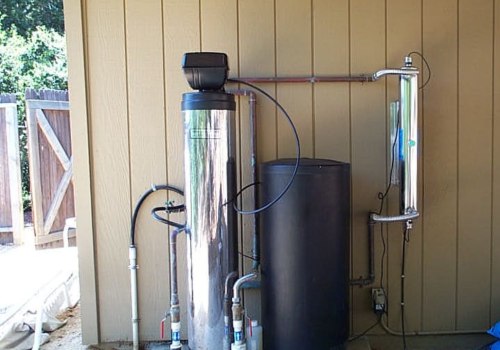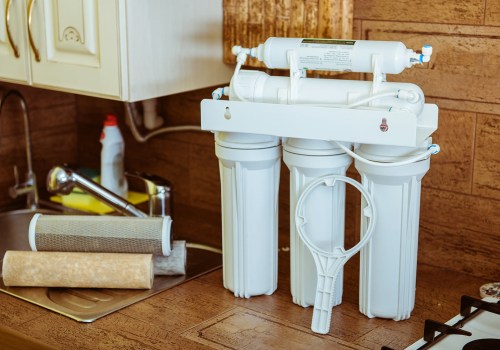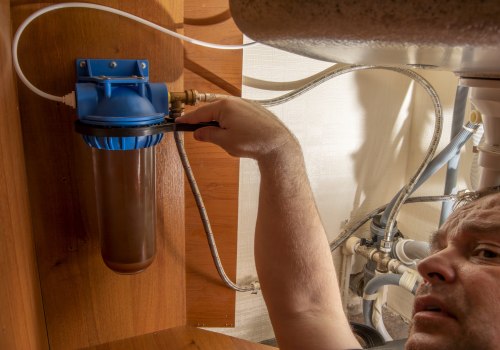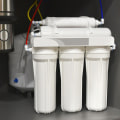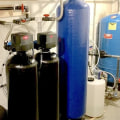Purifying Hope: Revolutionizing Clean Water Access with Water Filters in Developing Nations
Imagine a world where every drop of water you drink is pure and safe, where diseases caused by contaminated water are no longer a daily threat. In developing countries, this reality is becoming possible through the use of water filters. These small but mighty devices are transforming lives by providing access to clean and safe drinking water.
In this article, we will explore the impact of water filters on health, economic opportunities, and sustainability in developing nations. Get ready to discover how simple technology can make a profound difference in people's lives.
Key Takeaways
• Water filters in developing countries can transform lives by providing clean water access.
• Implementing water filters in underserved regions worldwide increases access to safe drinking water and promotes sustainable development.
• Supporting innovative technologies, such as smart technology and data analytics, enhances water treatment processes and improves efficiency.
• Funding initiatives for clean water access prioritize underserved communities, ensure sustainable project funding, and foster global partnerships for clean water initiatives.
The Global Water Crisis and Its Consequences
You may not realize it, but the global water crisis has far-reaching consequences for communities worldwide.
Water scarcity and waterborne diseases are two significant issues that arise from this crisis. Currently, 2.1 billion people lack safe drinking water, leading to increased waterborne diseases such as cholera, typhoid, and diarrhea. Every year, approximately 3.4 million people die due to water-related illnesses.
Additionally, water scarcity affects agriculture and food production, causing a decrease in crop yields and increasing food insecurity for millions of people. The impact of the global water crisis is not limited to developing countries; even developed nations face challenges in maintaining clean and accessible water sources.
We must address this crisis through sustainable solutions like implementing efficient water filters to save lives and improve overall community well-being.
How Water Filters Work
The way water filters operate is by removing impurities from the water source.
Water filter mechanisms work through a filtration process that involves multiple stages.
First, the water passes through a pre-filter that removes larger particles such as sediment and debris.
Next, it moves through an activated carbon filter that absorbs chemicals and odors present in the water.
Then, a micron filter or membrane further eliminates smaller contaminants like bacteria and viruses.
Some advanced filters also employ ion exchange resins to reduce heavy metals and other harmful substances.
The filtration process ensures that clean and safe drinking water is obtained by trapping impurities while allowing pure water molecules to pass through.
This technology has dramatically improved access to clean water in developing countries, preventing diseases caused by contaminated water sources.
Impact on Health and Well-being
The impact of clean water on your health and well-being is significant. It helps prevent diseases caused by contaminated water sources. Access to clean water improves hygiene and reduces waterborne diseases. According to data from the World Health Organization, around 2 billion people worldwide consume water contaminated with feces. This results in the spread of diseases like diarrhea, cholera, and typhoid fever. We can remove harmful bacteria and pathogens from drinking water sources by implementing effective water filters in developing countries. This significantly reduces the risk of these illnesses. Studies have shown that access to clean drinking water can lead to a 20-30% decrease in cases of diarrheal diseases. Therefore, ensuring access to clean water through reliable filtration systems is crucial for improving public health and well-being in developing regions.
Economic and Educational Opportunities
In this discussion, we will explore the economic and educational opportunities that arise from increased productivity, income generation, and access to education and empowerment.
These key points have been proven to significantly impact the development of individuals and communities in developing countries.
Through data-driven analysis, we will examine how these factors contribute to poverty reduction, job creation, and overall socioeconomic progress.
Increased productivity and income generation
Access to clean water through water filters has increased productivity and income generation in developing countries. Studies have shown that when individuals have access to clean water, they are less likely to suffer from waterborne diseases, leading to improved health and reduced absenteeism. This, in turn, increases employment opportunities as people can work more consistently and efficiently.
Additionally, clean water expands agricultural activities, resulting in higher crop yields and increased income for farmers. Moreover, access to clean water enables the establishment of small-scale businesses such as car washes or laundromats, creating further employment opportunities and contributing to poverty reduction.
The economic benefits of improved access to clean water cannot be underestimated in their potential to transform lives and uplift communities in developing countries.
Access to education and empowerment
Having access to education and being empowered with knowledge can significantly improve opportunities for individuals in developing nations. It is crucial to address the issue of access to education, especially for women, as it substantially promotes women's empowerment and overall societal development.
Studies have shown that educated women are more likely to make informed decisions about their health, family planning, and economic well-being. Furthermore, educating girls has a ripple effect on communities by reducing poverty rates and contributing to economic growth.
However, the reality is that many girls in developing countries still face barriers such as gender discrimination, early marriage, and lack of resources. To overcome these challenges, it is essential to invest in initiatives that ensure equal access to education for all individuals regardless of gender or socioeconomic status.
Sustainability and Affordability
Water filters in developing countries are crucial to ensuring the sustainability and affordability of clean water. Reusable filters play a vital role in achieving these goals by providing a long-lasting solution to the ongoing challenge of accessing safe drinking water.
These filters are designed to remove contaminants such as bacteria, viruses, and protozoa, making the water safe for consumption.
Community involvement is essential for the success of these initiatives. Engaging local communities in filter distribution and maintenance can achieve sustainability. This approach empowers community members and ensures that they take ownership of the filtration systems.
Moreover, involving community members helps spread awareness about proper usage and maintenance practices, extending the lifespan of the filters and maximizing their impact.
Together, reusable filters and community involvement contribute significantly towards sustainable and affordable access to clean water in developing countries.
Success Stories and Case Studies
Engaging local communities in distributing and maintaining reusable filters has been instrumental in achieving sustainable and affordable access to clean water in underserved regions. Through community engagement, organizations have empowered local individuals, providing them with the knowledge and skills to operate and maintain water filters effectively.
One success story comes from a small village in rural Africa, where a non-profit organization partnered with community leaders to implement a water filter program. Training sessions were conducted, teaching villagers about the importance of clean water and how to use and care for the filters. The community quickly embraced this initiative, taking ownership of their health and well-being.
The scalability and replication potential of this approach is significant. Involving local communities not only does it ensure long-term sustainability but also creates a sense of ownership and responsibility among individuals who benefit directly from these filters.
This model can be replicated in other underserved regions worldwide, ensuring more people access safe drinking water while fostering self-sufficiency within communities.
The Future of Clean Water Access
To ensure sustainable access to clean water, you can support innovative technologies and funding initiatives that prioritize underserved communities worldwide.
Innovative technology is revolutionizing the way we address water scarcity and contamination. These innovative solutions leverage advancements in sensors, data analytics, and automation to improve the efficiency and effectiveness of water treatment processes.
For example, remote monitoring systems can detect changes in water quality in real-time, allowing for proactive interventions to maintain safe drinking water supplies. Additionally, decentralized filtration systems are being developed to purify water at the household level, reducing reliance on centralized infrastructure.
Frequently Asked Questions
What are the leading causes of the global water crisis?
The leading causes of the global water crisis include population growth, pollution, climate change, and inadequate infrastructure. Solutions involve improving water management practices, investing in clean water technologies, and promoting sustainable development strategies.
How can water filtration effectively remove contaminants from the water?
Water filters effectively remove contaminants from water through various mechanisms. These include physical filtration, chemical processes like adsorption and ion exchange, and biological methods such as activated carbon and disinfection. The effectiveness of filtration methods depends on the specific filter design and the target contaminants.
Are there any adverse health effects from using water filters?
Water filters have been shown to remove contaminants from water effectively, but it's important to note that there can be adverse health risks associated with their use. These risks include the potential for bacterial growth and the release of harmful chemicals.
What economic benefits can arise from providing clean water access in developing countries?
Economic empowerment and poverty reduction are two key benefits of providing clean water access in developing countries. Access to clean water enables communities to thrive economically, leading to increased productivity, income generation, and improved living standards.
How can communities in developing countries ensure the long-term sustainability of clean water access?
To ensure the long-term sustainability of clean water access, communities in developing countries should prioritize community involvement and infrastructure development. This includes active participation in decision-making processes and investing in constructing and maintaining reliable water supply systems.
Earthwise Water Filters Phoenix
922 N Colorado Street, Gilbert AZ 85233
(602) 878-6160

